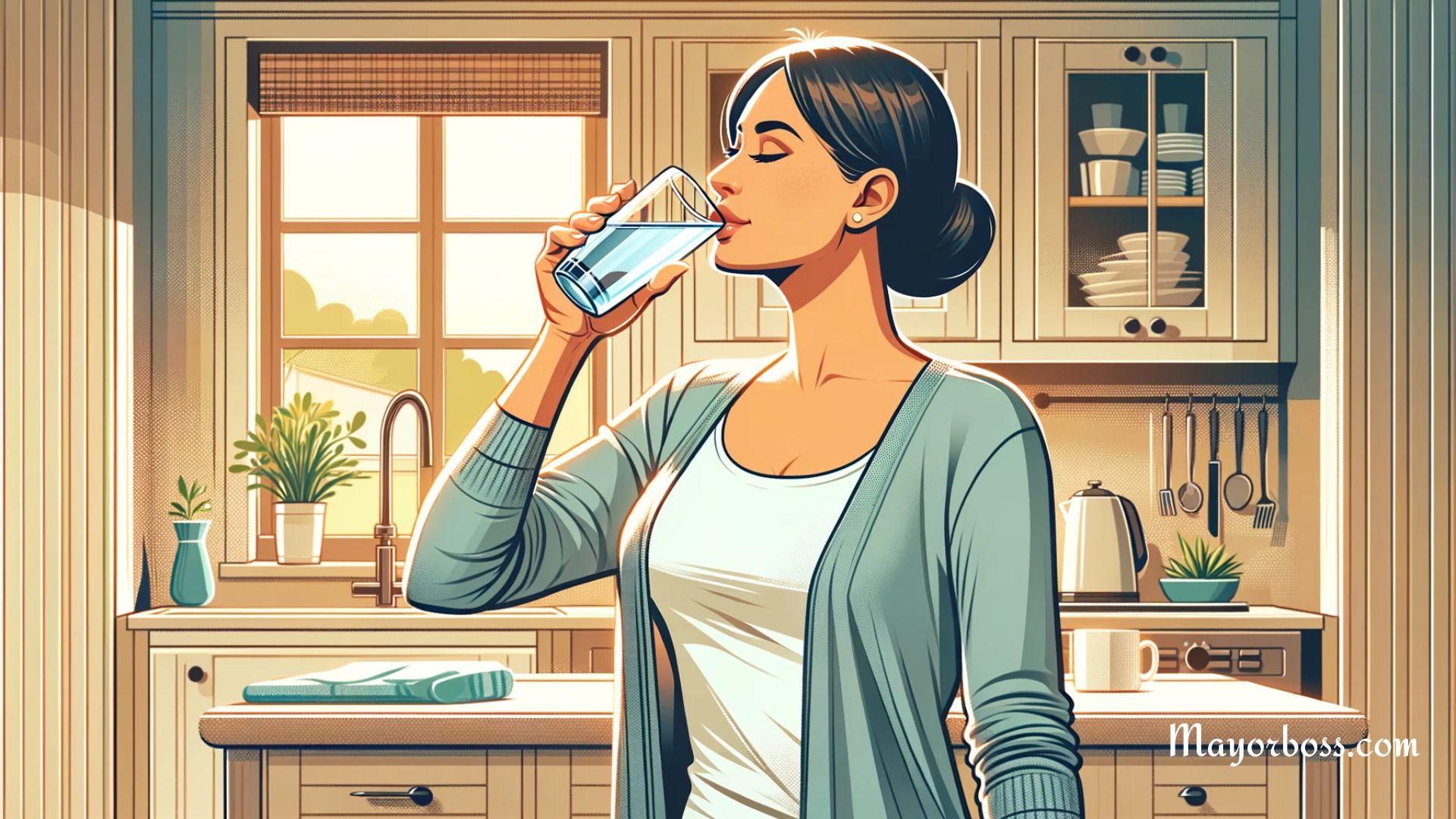Can Drinking Water Lower Blood Pressure?
Have you ever wondered if something as simple as drinking water could help manage your blood pressure? It sounds almost too easy, doesn’t it? This article will explain the science and stories behind this question to understand how water and blood pressure might be connected.

The Role of Hydration in Blood Pressure Regulation
First, let’s talk about hydration. Approximately 90% of blood plasma is water. Your body needs water to function correctly, and this includes maintaining blood pressure. When you’re well-hydrated, your blood vessels can work more efficiently. Efficient blood vessels mean a smoother blood flow, which can have a positive impact on your blood pressure.
How Dehydration Affects Blood Pressure
On the flip side, dehydration can lead to increased blood pressure. When your body lacks water, it compensates by retaining sodium. Sodium holds onto water, which helps keep fluid inside. However, more sodium in your bloodstream can increase your blood volume, leading to higher blood pressure.
Water as a Natural Blood Pressure Regulator
Drinking water might not directly lower blood pressure, but it helps maintain a healthy balance. Proper hydration ensures that your body can regulate blood pressure effectively. Think of water as a natural supporter, not a direct medication.
Anecdotal Evidence and Scientific Research
You might have heard stories of people who swear by water to manage their blood pressure. While personal experiences are valuable, they aren’t always backed by scientific evidence. So, what does the research say?
Studies on Hydration and Blood Pressure
Several studies have explored the relationship between hydration and blood pressure. Some suggest that chronic dehydration can lead to consistently higher blood pressure. Others indicate that hydration status doesn’t have a significant impact on blood pressure in healthy individuals.
The Complexity of Blood Pressure Regulation
It’s important to remember that blood pressure regulation is complex. It’s influenced by various factors, including diet, lifestyle, genetics, and underlying health conditions. So, while water plays a role, it’s just one piece of a larger puzzle.
Other Natural Remedies for Lowering High Blood Pressure
- DASH Diet: Emphasize fruits, vegetables, whole grains, and lean proteins; limit salt, red meat, and sweets.
- Potassium-Rich Foods: Include bananas, sweet potatoes, and spinach to balance sodium levels.
- Regular Cardio Exercise: Aim for 150 minutes per week of activities like walking, swimming, or cycling.
- Strength Training: Incorporate it twice a week for overall cardiovascular health.
- Mindfulness and Meditation: Practice regularly to reduce stress-related blood pressure spikes.
- Deep Breathing Techniques: Deep breathing exercises activate the parasympathetic nervous system, leading to relaxation and lowering blood pressure.
- Maintain Healthy Weight: Losing excess weight can significantly impact blood pressure levels.
- Adequate Sleep: Aim for 7-8 hours of quality sleep to prevent blood pressure elevation due to poor sleep patterns.
- Limit Alcohol: Moderate consumption is critical to avoiding blood pressure increases.
- Quit Smoking: Each cigarette raises blood pressure temporarily; quitting can stabilize it.
- Garlic Extract: Known for its blood pressure-lowering properties.
- Omega-3 Fatty Acids: Found in fish oil and flaxseeds, beneficial for blood pressure.
- Hibiscus Tea: Its diuretic properties can help lower blood pressure.
Practical Tips for Hydration and Blood Pressure Management
If you’re interested in using hydration to help manage your blood pressure, here are some practical tips:
- Drink Enough Water: Aim for the often-recommended 8 glasses a day, but remember, needs can vary based on factors like activity level and climate.
- Monitor Your Hydration: Pay attention to signs of dehydration, such as dark urine, dry skin, and fatigue.
- Balance Your Diet: A diet high in fruits and vegetables, which contain water, can also help maintain hydration.
- Limit Sodium: Reducing sodium intake can be beneficial for blood pressure management, especially for those sensitive to salt.
- Regular Check-Ups: Always consult with your healthcare provider, especially if you have concerns about your blood pressure.
Conclusion
In conclusion, while staying hydrated is essential and can support healthy blood pressure, it’s not a standalone solution. It’s a piece of a larger lifestyle approach that includes a balanced diet, regular exercise, and monitoring your health. Remember, always consult with your doctor for advice on controlling your blood pressure.
